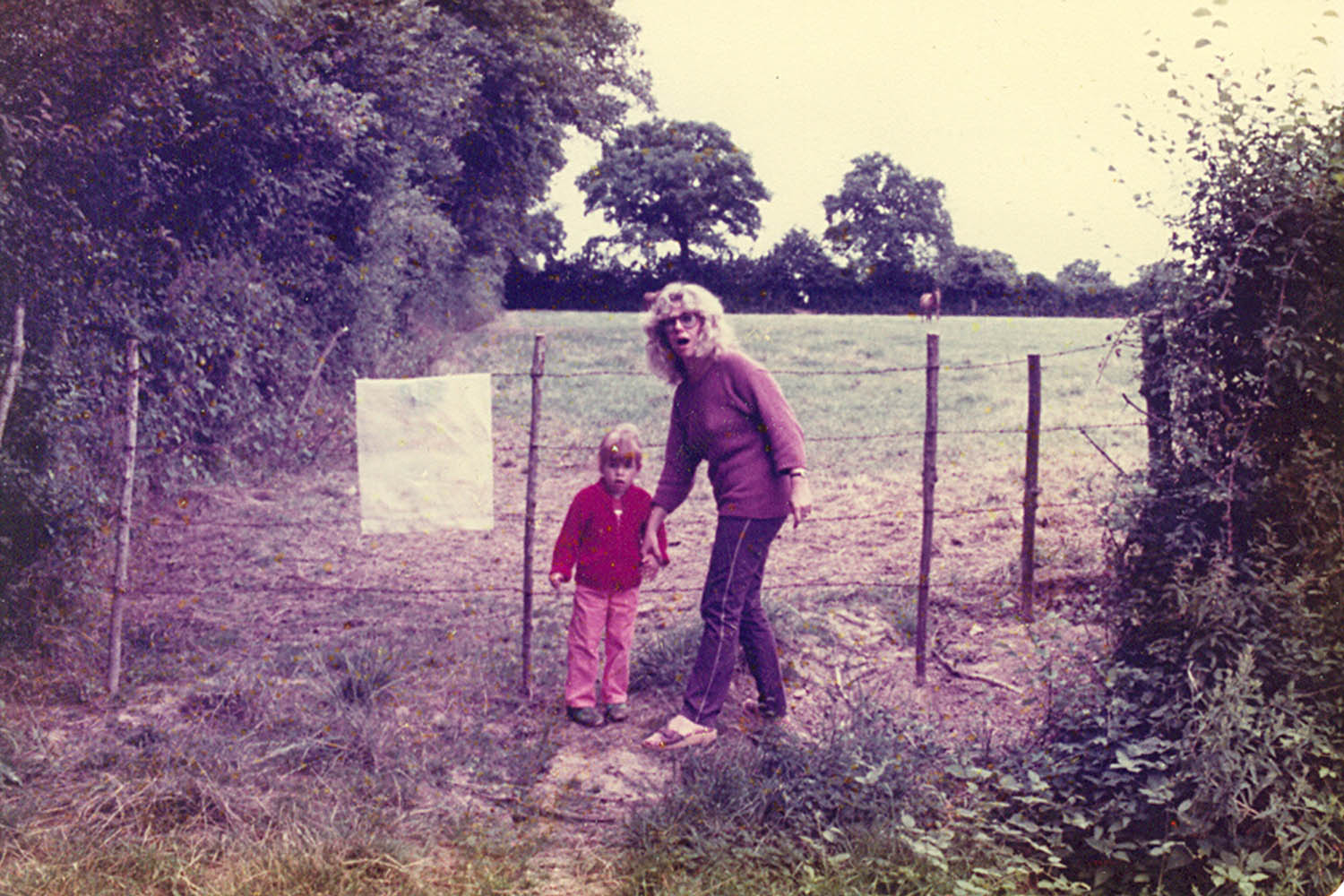In 2023, the 50th anniversary was celebrated of Erica Jong’s debut novel, Fear of Flying, an explicit depiction of female sexual emancipation that went on to sell more than 37m copies and become a cornerstone of 1970s second-wave feminism. Jong became a celebrity, a darling of the talk-show and lecture circuit: a “Feminist Icon, except that she was really not that feminist, and really not that iconic”, as her only child, Molly Jong-Fast, drily notes in this frank and conflicted memoir.
For Jong-Fast, 2023 was “the worst year of my life”. By the time the New York Times Book Review published its anniversary article about Fear of Flying, Jong-Fast had dealt with putting her mother and stepfather, suffering from dementia and Parkinson’s respectively, into a nursing home, while her husband, Matt, was having surgery for pancreatic cancer, his prognosis uncertain. In the same few months, she also lost her godmother, father-in-law and aunt, and through it all she continued to work as a political journalist and podcast host, while parenting three teens.
This perfect storm of life events will be familiar to many middle-aged women, and navigating these multiple familial crises might have made for a compelling narrative regardless of her mother’s biography. But Erica’s one-time celebrity, and the way it warped her daughter’s childhood, adds an extra layer of prurient fascination; for Jong-Fast, it’s impossible to witness her mother’s decline without being pitched repeatedly into painful memories of neglect and abandonment that she has yet to make peace with, and perhaps never will: “I was stuck shadowboxing a mom who was sitting in a nursing home, staring at a shelf of books she didn’t know she wrote.”
Every intimate detail about Erica Jong is countered by an example of her historic exploitation
Every intimate detail about Erica Jong is countered by an example of her historic exploitation
All through the book, she agonises over the ethics of writing it and her own motives for doing so. “I wrote this book to help people (you have to say that, but it’s actually true), but also because I hoped the act of writing would make me less insane.” She wonders if she has the right to expose her once-beautiful, glamorous mother at a time when she has lost not only her dignity but also the ability to comprehend she has lost that dignity – never mind the capacity to consent to any such exposure. Is it a betrayal to write about her mother’s addictions and failings, or a reasonable quid pro quo, given that Erica routinely mined every aspect of her daughter’s life for copy? Every intimate detail that might make the reader uncomfortable – telling us that her mother has defecated in bed – is met with a counter-example of Erica’s historic exploitation: when Jong-Fast almost bled to death giving birth to her twins, her mother appropriated the experience for one of her characters, whom she then mocks for embellishing the story to exaggerate her own heroism. “Imagine that,” Jong-Fast writes. “Imagine that the worst thing that’s ever happened to you is portrayed as a figment of your own imagination. By your own mother.”
In many ways, How To Lose Your Mother is a bleak book, only partially leavened by Jong-Fast’s conversational tone and sardonic humour. There is no neat resolution to the relationship with her mother, unless you count her acceptance that there will be no resolution: “She is both alive and dead… The mother I was desperate for, that mother, she is gone, and she will never be. We will never have the relationship I desperately wanted.”
She does not spare Erica, who is portrayed as a narcissist and alcoholic who left her daughter to be raised by nannies. But Jong-Fast writes with the precision-guided self-awareness of someone who has spent decades in therapy and AA; she is clear-eyed about her own co-dependency and enmeshment, and tries to elicit compassion for a woman who inflicted her own damage on the people closest to her: “I want to explain to you how my mother was a deeply broken person who went from man to man trying to find an identity.”
The moral questions about how much of a writer’s life or work should be put into the public sphere once they are no longer able to consent remain pertinent; Jong-Fast’s warts-and-all portrait of her living mother might be regarded as a violation of privacy. But from another perspective, Molly Jong-Fast is the embodiment of Erica Jong’s legacy, and this book is a brave, if sometimes troubling, testament to her own capacity for survival.
How to Lose Your Mother: A Daughter’s Memoir by Molly Jong-Fast is published by Picador (£16.99). Order your copy from observershop.co.uk to to receive a 10% discount.
Photograph courtesy Molly Jong-Fast
Newsletters
Choose the newsletters you want to receive
View more
For information about how The Observer protects your data, read our Privacy Policy
